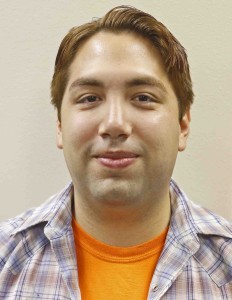Editor’s Note: This is the third in a three-part series on the Affordable Care Act’s impact on UTEP students.
Through the Affordable Care Act, students and educators alike may become eligible for loan forgiveness and additional stipends for serving in high-poverty communities such as El Paso.
Although the government shutdown debate originally focused primarily on the ACA, the almost 1,000-page document contains a cache of sections that would impact students in the health science fields.
Delving into the ACA reveals extensive provisions that create annual grants and awards for hundreds of millions in government allocations.
Section 5201 forgives the federally subsidized student loans for recent medical school graduates. These individuals will have money deducted from their loans based on the type of medicine they practice.
The entire balance of their loans and interest could be paid off within 10 years, although the act stipulates that certain high-demand disciplines would be eligible for early release.
Failure to complete the program could result in an additional two percent interest rate punitively being tacked onto the balance.
A separate section (2305) establishes a new loan repayment program, where individuals who commit to working in pediatric and adolescent healthcare can receive government stipends. This section allows for payments on the principal amount of up to $35,000 per year of service.
Public Health Workforce Loan repayment (section 776) allows anyone who has graduated from an accredited school in the preceding 10 years to receive support by committing to the public health field.
For anyone who commits to these programs, up to $105,000 of student loans could be forgiven.
Some students seem keen on utilizing current and future subsidies.
“Living in an under-represented medical care area, basically all of El Paso, there is already a loan forgiveness program where you sign for about three to four years and they pay all your loans,” said Susana Portillo, senior microbiology major. “So yes, if this program would continue, I would definitely consider going into primary care and coming back to my community, where I know healthcare is needed.”
Another provision within the ACA is the creation of the Elite Federal Disaster Teams. This subsection of section 271 authorizes the creation of a Public Health Sciences Track for 850 recent graduates, representing every medical field including dental, behavioral and pharmaceutical sciences. These students would receive loan forgiveness and would be eligible for job placement in the government.
These individuals would work on curricula, approved by the Surgeon General, that focuses on patient-centered interdisciplinary care.
According to the ACA, during times of crisis, the disaster team would partner with the Centers for Disease Control and various federal or military entities “to respond to public health emergencies, natural disasters, bioterrorism events and other emergencies.”
Buried deep in the bill is section 10212, entitled Establishment of Pregnancy Assistance Fund. This clause provides for universities to expand pregnant and parenting student services. Schools will be encouraged to expand on-campus child care, provide flexible academic scheduling and even aid students with certain maternity items.
This section could also affect residence life. With the expansion of on-campus housing and more dormitories in UTEP’s master plan, this stipulation would require the addition of large family-style housing.
Students who intend to go into the spectrum of psychological areas are also eligible. Section 756 opens the door to loan forgiveness for students working towards bachelor’s, master’s or doctoral degrees in the field.
Some students are skeptical about the programs.
“It’s great for a nation moving toward a utopian attitude,” said Kyle Johnston, junior public relations major. “Unfortunately, we live in capitalism.”
Students are not the only ones to potentially benefit.
Under Section 747, medical professions can be granted fellowships if they aid in the training, workforce development and placement of students. This is intended to make the academic side of the medical profession more attractive by offering a lucrative reward to committing to education.
S. David Ramirez may be reached at [email protected].





